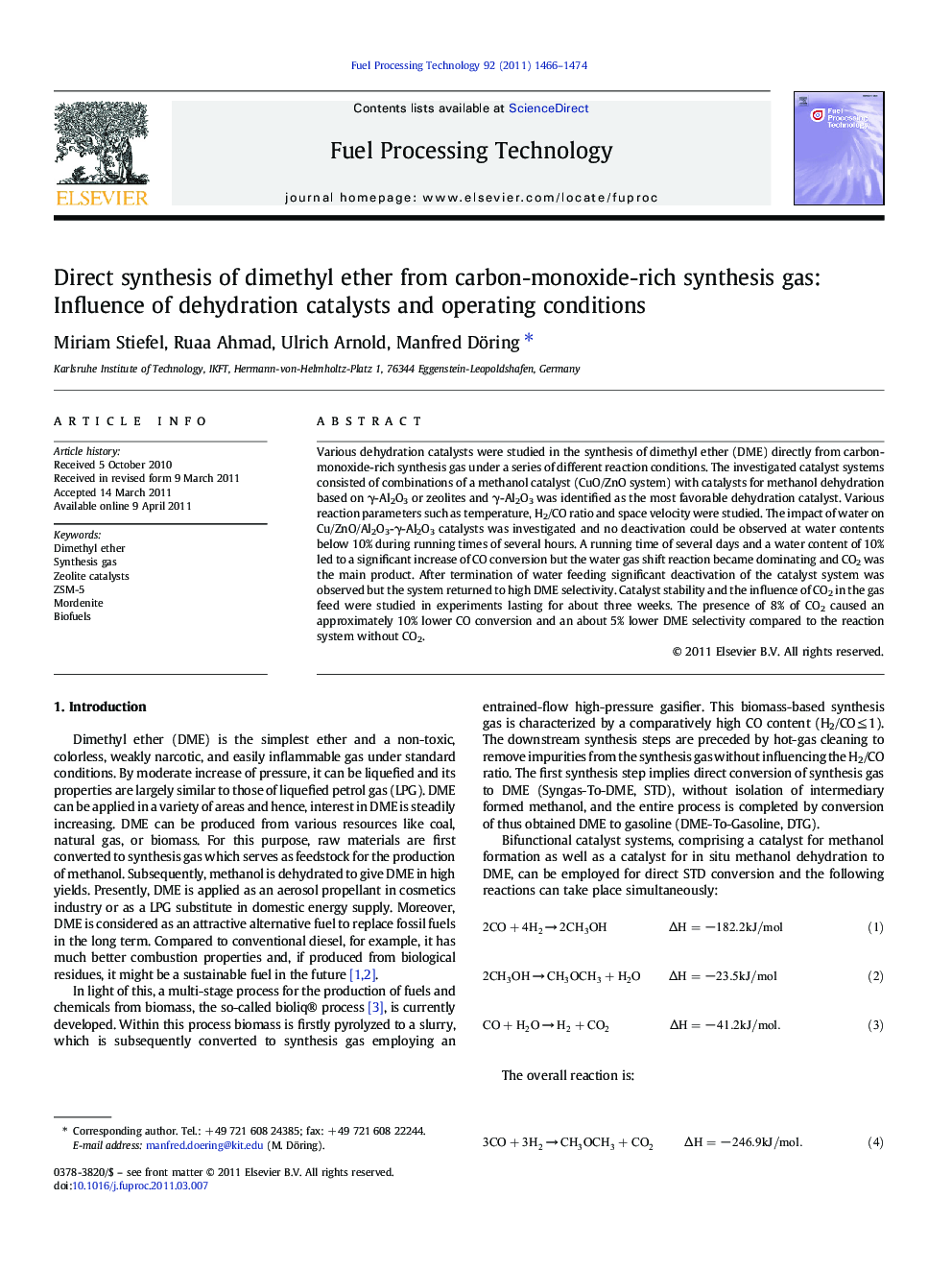| Article ID | Journal | Published Year | Pages | File Type |
|---|---|---|---|---|
| 210783 | Fuel Processing Technology | 2011 | 9 Pages |
Various dehydration catalysts were studied in the synthesis of dimethyl ether (DME) directly from carbon-monoxide-rich synthesis gas under a series of different reaction conditions. The investigated catalyst systems consisted of combinations of a methanol catalyst (CuO/ZnO system) with catalysts for methanol dehydration based on γ-Al2O3 or zeolites and γ-Al2O3 was identified as the most favorable dehydration catalyst. Various reaction parameters such as temperature, H2/CO ratio and space velocity were studied. The impact of water on Cu/ZnO/Al2O3-γ-Al2O3 catalysts was investigated and no deactivation could be observed at water contents below 10% during running times of several hours. A running time of several days and a water content of 10% led to a significant increase of CO conversion but the water gas shift reaction became dominating and CO2 was the main product. After termination of water feeding significant deactivation of the catalyst system was observed but the system returned to high DME selectivity. Catalyst stability and the influence of CO2 in the gas feed were studied in experiments lasting for about three weeks. The presence of 8% of CO2 caused an approximately 10% lower CO conversion and an about 5% lower DME selectivity compared to the reaction system without CO2.
Research Highlights► Catalyst systems for the synthesis of dimethyl ether directly from syngas. ► γ-Al2O3 is identified as the most favorable methanol dehydration catalyst. ► Study of various reaction conditions. ► Water and carbon dioxide show a significant impact on the catalyst systems.
